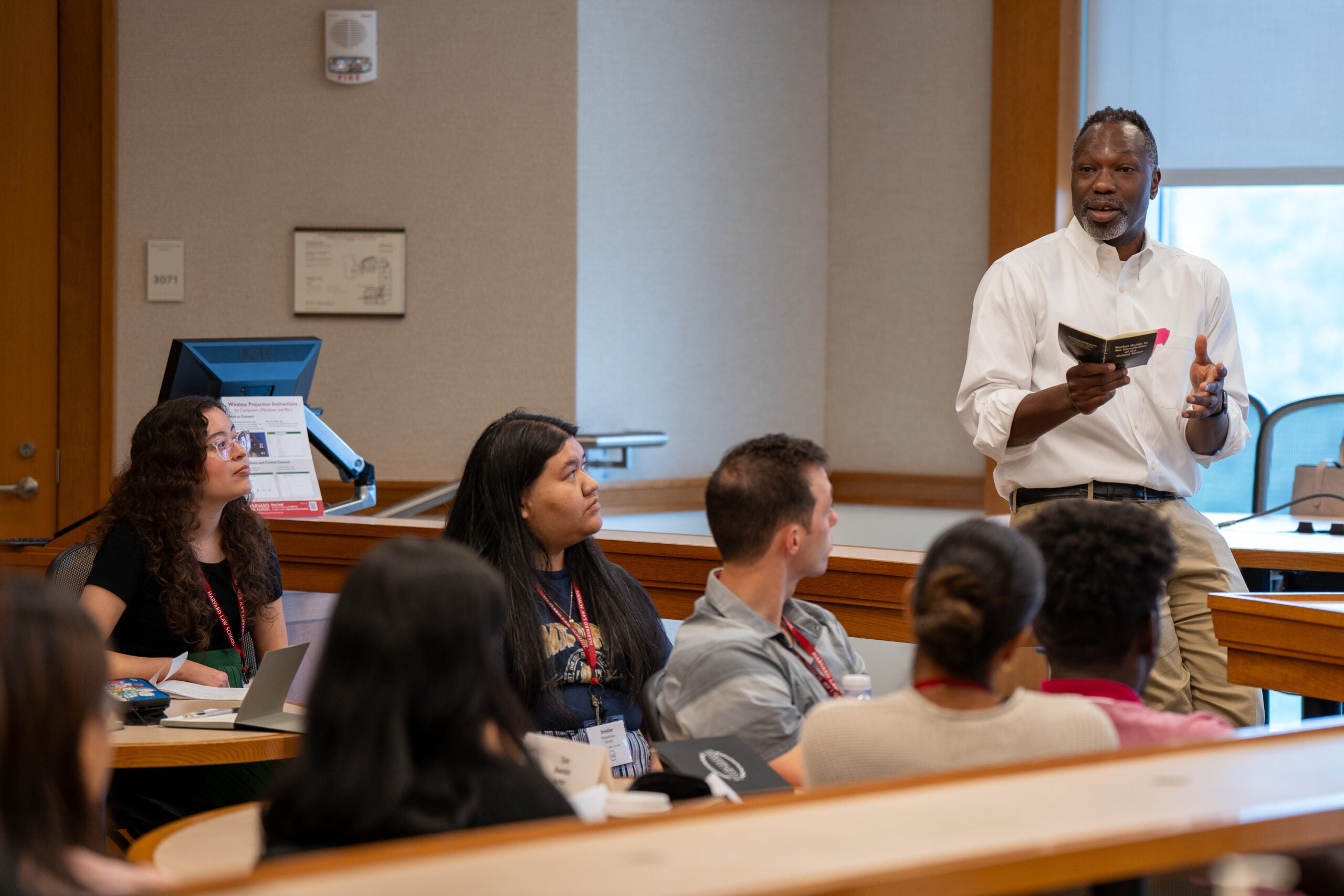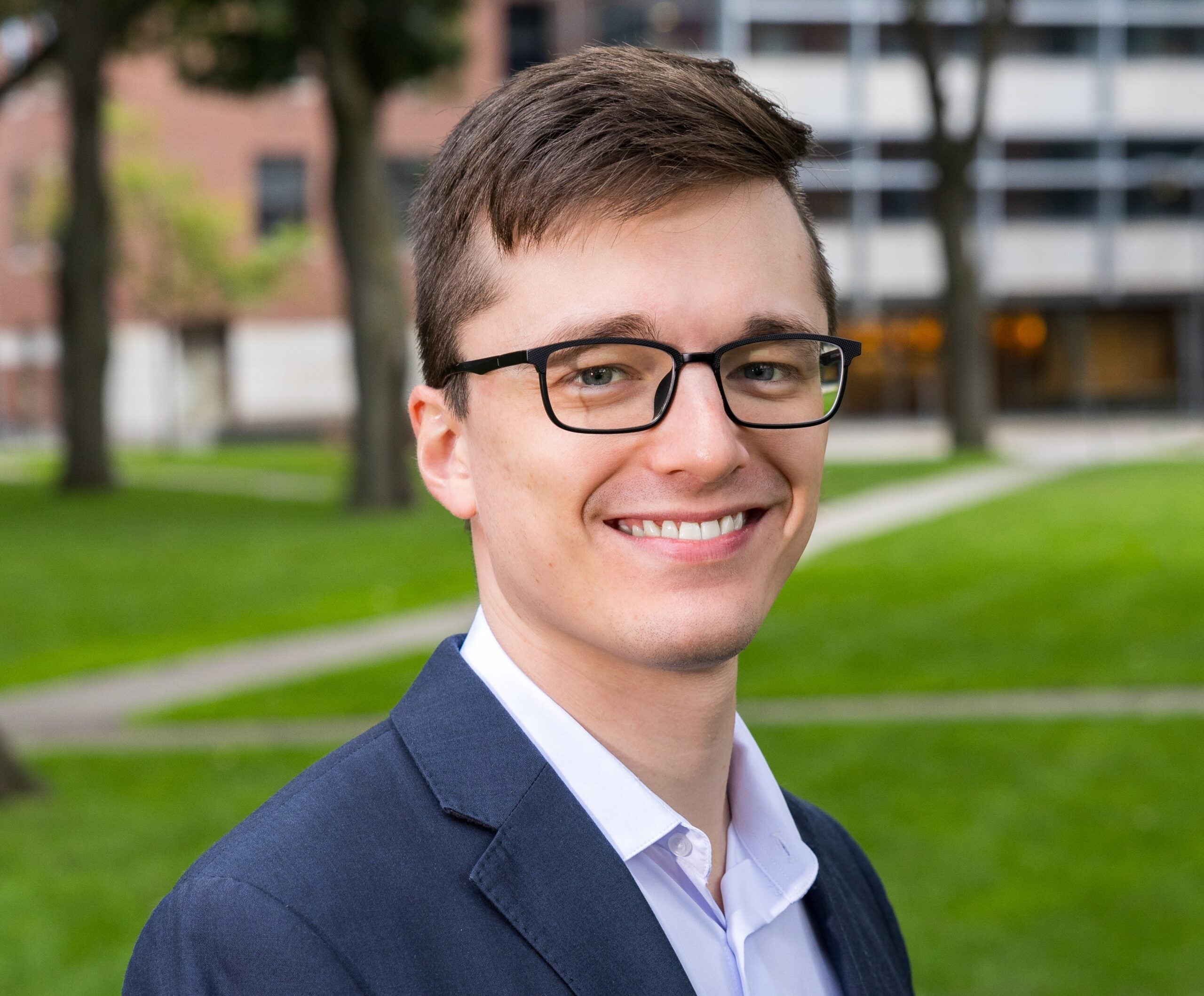
“Mr. Reichard, please tell us the facts of the case.”
It was my first day of law school and my first class in civil procedure. It was 4:00 p.m. on the dot and the students of Section 5 had just sat down. There was no “welcome to civil procedure, my name is Professor Charles, and here’s the syllabus,” just a launch right into the reading. I was seated at the end of the top row and I was getting cold-called.
Thankfully, I had read the case just the day before and taken plenty of notes, but that didn’t prevent some nervous sputtering.
“Certainly, let me pull my notes up quick… here we are… Ok, so the plaintiff applied for unemployment benefits, but they were denied because—”
“Is this a state or a federal case?” Professor Charles interjected.
Any seasoned law student will tell you this is a layup. A basic question of jurisdiction, a primary topic of civil procedure. And yet — despite my eager and attentive reading the night before — I never thought to check that. Scanning my notes in vain for a few seconds and seeing “New York” everywhere, I took a guess.
“This is a state case, right?”
“I don’t know, that’s why I asked you,” Professor Charles quipped back.
My heart sank. I certainly didn’t mean to be disrespectful.
“It’s a state case, sir,” I said, doubling down on my guess and trying to keep my composure.
“What court is this opinion from?”
My eyes darted to the first line of the case in the book and saw “Supreme Court of the United States.” Sure enough, my coin flip went wrong and this was as federal as a case could be. I felt the weight of the room fall on me. I was messing this up already, and all of my new friends in the section would think I was an idiot. But I was still on call, and I had to keep talking.
“This was in the Supreme Court. So, I was mistaken, this is a federal case.”
“What was the standard the Court articulated?” Professor Charles suddenly wasn’t interested in facts. He jumped right to the meat of the case. And while I had focused on this part of the reading, now I was flustered.
“I think… the Court is interested in protecting due process, and they don’t think the lower courts did that.” Imprecise and vague, I fumbled another layup.
Without skipping a beat, Professor Charles expressed his dissatisfaction with my answer by redirecting his question to the student next to me: “Mr. Morrell, what was the standard the court articulated?”
I was off the hook, but I wanted to melt into my seat. The professor probably thought I hadn’t even read the case so turned to someone who did. I felt like my first cold call went as badly as it could’ve, and I was so worked up that I could barely pay attention the rest of class. Afterward, I sheepishly tried to break some ice with my new peers. “Yikes, I really screwed that one up, huh?”
Their responses shocked me. “You had a cold call?” “You did so much better than I did on mine.” “I thought that was a state case too.” Instead of affirming fears that I was an idiot, they either had no recollection of my response or thought I did great. Were they even in the same room as me?
A couple of weeks later I spoke to Professor Charles after class and he told me I was understanding a complicated topic. “Hopefully doing better now than that first day, huh?” I joked. Puzzled, he admitted he couldn’t recall my perceived screw-up. In fact, he couldn’t really remember anyone’s cold calls from the semester so far, good or bad. And my performance certainly hadn’t affected my relationship with him.
In those intervening weeks, I learned to adapt my reading style to match what my professors were looking for in their cold calls. Some, like Professor Charles, cared more about the court’s reasoning and broader policy questions. Others wanted to focus on details in the facts. Still others used a panel system for cold calls, so most days I could take a more relaxed approach to my reading.
I was learning that the cold calls were truly a part of the course pedagogy; it’s how the professors were making sure we were doing our readings and focusing on the points they felt mattered. Their value lay in how they helped me learn the material.
As I became more comfortable with the Socratic method and classroom discussions during my 1L fall, I also began to find value in other activities around campus. There’s a lot more to law school than casebooks and lectures, after all. I began to learn and grow more by joining student groups, listening to my peers about their passions and backgrounds, and surrounding myself with a diverse group of driven people. Over time I’ve realized that learning about the world from these people is just as valuable as learning legal doctrine from a casebook.
My perspective has shifted to prioritize these experiences instead of over-stressing about things that have less value, like my performance on a cold call.
Today, no one thinks of me as Ben, the guy who blundered his first cold call. They think of me as Ben, the BSA, or Ben, the Appalachian, or Ben, the flag football ref — one of my many other identities and communities, one of the many different ways I’ve tried to make the most of my time at Harvard Law School beyond the classroom.
“Ben, please tell us the facts of Jet Courier Service.”
Over a year after that fateful day in civil procedure, I was being cold called in my upper-level, 120-student employment law course.
“This is a case about the loyalty employees owe to their employer.”
For the next half hour, I walked us all through the case. I didn’t know everything to professor asked, and at one point speculated that the court was just making something up. But my nervousness and flustering were gone. I delivered my answers confidently, knowing that my performance wouldn’t affect how the professor thought of me, how my classmates felt about me, how much I would learn in this class, or how valuable my law degree would be. And before I knew it, my time was up.

After class, Professor Sachs sent me a kind email, saying I demonstrated strong analysis and mastery of the case. But in truth I had spent no more time with Jet than I did with that case for the first day of civil procedure. All I did was put law school in perspective.
–Ben Reichard ’25
Filed in: Student Voices
Contact the J.D. Admissions Office
Website: hls.harvard.edu/jdadmissions
Email: jdadmiss@law.harvard.edu